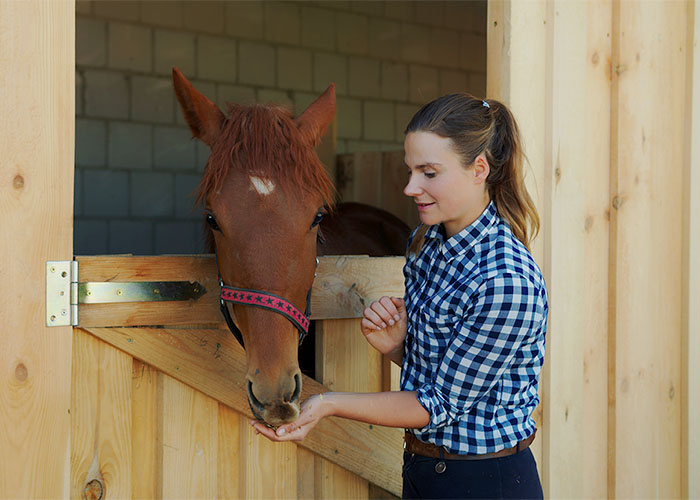
From bonding moments to training purposes, many horses and their human companions love the satisfaction that comes with giving horse treats. At The Cheshire Horse, we offer a broad selection of horse treats that will please even the most discerning equine in your life. When customers shop at our flagship store in Swanzey, NH, they are often amazed by the large wall of horse treats that we have in stock!
When shopping for horse treats, it may seem the options are endless. And, in many ways, they are! In this blog, we take a look at the various types of horse treats on the market so that you can choose the perfect match for your beloved horse or pony.
The Role of Horse Treats
It is important to note that horse treats are just that, a treat! Horse treats are one way to let your horse know that they are loved and appreciated. It is so pleasurable to watch your horse enjoy chewing a delicious tidbit as a reward or just for fun.
Treats should be offered along with a well-rounded diet and not be your horse’s main source of nutrition. However, some horse treats are somewhat therapeutic and contain nutritional supplements; these treats should be fed according to the manufacturers’ recommendations to ensure that your horse is receiving the ideal amount of support from their ingredients.
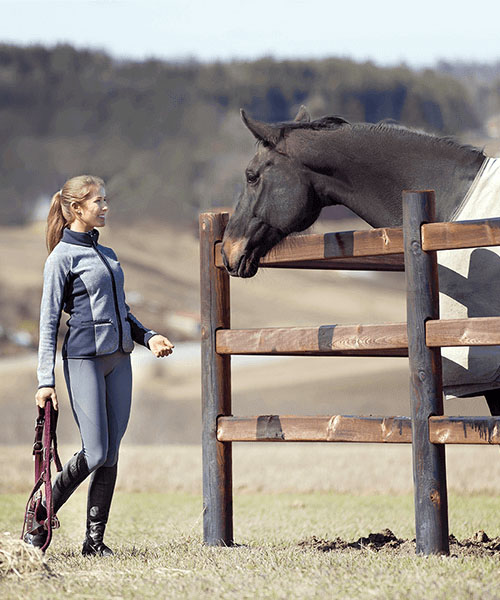
Horse treats are often used to forge a stronger bond between you and your horse, they can also be used as a reward for good behavior. Many equestrians like to give their horse a treat immediately after they catch them in the pasture to encourage easy catching. Though, if you have a nippy or mouthy horse, it would be wise to give them treats in their feed bucket so they do not become pushy or unsafe.
To keep their horses loose and limber, some horse owners perform “carrot stretches.” Veterinarians often recommend these movements to horses with back pain and neck pain, but truly every horse can benefit from their effects. You can use carrots or cookies, etc to encourage your horse to go through these movements so they are flexing to reach the treat.
Rescue organizations have found horse treats to be an invaluable resource in their retraining process. Many times, horse treats can encourage a scared horse to allow a human to touch them. Through repetition, equine rescues can teach a horse to trust people again.
Additionally, treats can be used to disguise medications. This is particularly true if your horse needs to consume the medication in pill format. Dimples Horse Treats and Standlee Horse Pill Carriers are made specifically for this purpose and contain a special pill pocket to hold the medication. You can learn more about utilizing horse treats for this function on our blog post, Administering Oral Medications for Horses.
Types of Treats
Choosing the right treat for your horse can take a bit of trial and error. Fortunately, many of the treats that we carry come in small sizes so that you can test them out with your horse(s). We recommend purchasing a few smaller bags of different types in the beginning, to see which type your horse prefers. Horse treats are made from a variety of different main ingredients, primarily whole grains that horses would encounter as a part of their daily rations, such as oats, bran, beet pulp, and flax meal.
Customer Favorites: There are a number of treats that we routinely hear are well-loved by horses. Horses love sweet treats, and these treats use familiar flavors that horses enjoy, including carrots, apples, and peppermint flavorings. If you have a new horse and are trying to find their favorite snack, it may make sense to start with one of these “tried and true” recipes. Equus Magnificus German Beet Treats, Horse Nibbles, Mrs. Pastures Cookies for Horses, and Stud Muffins Original Horse Treats are just a few of the perpetual favorites among our customers’ horses.
Equus Magnificus German Beet Treats
The number one ingredient in these popular treats is beet pulp.
Training Treats: Some training programs, such as clicker training and carrot stretches, utilize food-based rewards as part of the technique. For these programs, you will want small, low-calorie treats that your horse can consume quickly and then continue on with the training regime. Ideally, these treats will fit easily into your pocket or a treat pouch, the PetSafe Treat Pouch, for example, to make it easy to take the training treats with you on the go or into the ring. Manna Pro Apple Flavor Bite-Sized Nuggets Horse Treats, Giddyap Girls Premium Horse Treats, and Uckele EquiTreats Cherry Vanilla Flavored Bite-Sized Horse & Pony Treats all work well for this purpose.
Manna Pro Apple Flavor Bite Sized Nuggets Horse Treats
These tasty treats are backed by a Happy Horse Guarantee.
Low Sugar/Starch Treats: For many horses that suffer from insulin resistance or metabolic disorders, their sugar and starch intake must be carefully monitored. Typically, this means that traditional horse treats are too high in sugar and starch to fit well within their diets. Many horse feed and treat manufacturers now produce low starch and low sugar treats so that these horses can still enjoy a rewarding time with their owners. The Omega Fields Omega Nibblers Peppermint Flavored Low Sugar & Starch Horse Treats are a wonderful example of these treats, giving your horse the benefit of Omega 3 fatty acids, while also keeping their sugar levels low. Many horses (and their owners!) also love the Buckeye No Sugar Added Peppermint Bits Horse Treats, which utilize all-natural peppermint oil for a delicious minty flavor.
Omega Fields Omega Nibblers Peppermint Flavored Low Sugar & Starch Horse Treats
These healthy treats contain stabilized ground flaxseed and natural ingredients that taste great.
Soft Treats for Senior Horses: As horses age, they tend to lose teeth and not be able to chew as well. These precious golden oldies still deserve a tasty snack! For horses who may have trouble chewing, there are a number of softer treats on the market that can be easily broken apart with minimal chewing. These are essential if you have a horse with dental problems to ensure that your horse will not choke or have difficulty swallowing. You can also break these treats into smaller pieces with your hands for even easier eating. The Equine Edibles Candy Cane Nuggets, the Manna Pro Nutrigood Senior Snax Horse Treats, and the Nicker Doodles Natural Handmade Gourmet Horse Treats are popular for this use.
Nicker Doodles Natural Handmade Gourmet Horse Treats
These delicious treats are baked fresh with natural, easily digestible ingredients, and they’re soft and easy to chew.
Supplemented Treats: Some treats are more than just delicious! These treats have supplements integrated into the recipe to give your horse health benefits. Because of the supplements in the formula, they may need to be fed in larger quantities than you would traditionally feed a treat (we promise your horse will not mind!). We often recommend these treats for horses who are finicky eaters and sort their supplements out of their grain rations. Many formulations are available, including digestive support horse treats, like Purina Outlast Horse Treats and Vets Plus ProBios Digestion Support Horse Treats, joint support horse treats, such as Flex XT Wafers and Rounders EZ-Go Horse Treats.
Purina Outlast Horse Treats
These treats also support gastric health and proper pH using Purina’s popular Outlast® Supplement,
Uniquely Flavored Treats: In recent years, new ingredients and new flavors have begun to spring up. Fenugreek, banana, mango, linseed, and rose hips are just a few of the fun new treats available. As they say, “Variety is the spice of life,” and many horses love having these integrated into their day in some form… Some of the ingredients also have some wonderful health benefits! Check out delicious flavors such as Leoveties Apple, Spelt Wheat & Red Beet Horse Treats, Woody’s Fenugreek Horse Nutrition Smart Treats, and Oregano and Mint Hilton Herballs Treats.
Leoveties Apple, Spelt Wheat & Red Beet Horse Treats
Horses love the unique flavors in these delicious treats.
Special Occasions Treats: Is your horse celebrating a birthday? Perhaps you are having a holiday celebration at the barn? Special occasion treats are a wonderful way to commemorate these fun events. Typically frosted with decorations and beautiful designs, these treats are not designed to be eaten by your horse on a regular basis, but they are delicious additions when eaten occasionally (hello, amazing photo ops!). Come on in to the store to check out our seasonal selection of special occasion treats or try your hand at making your own by following the direction on our blog post, Make Your Own Doughnut Horse Treats.
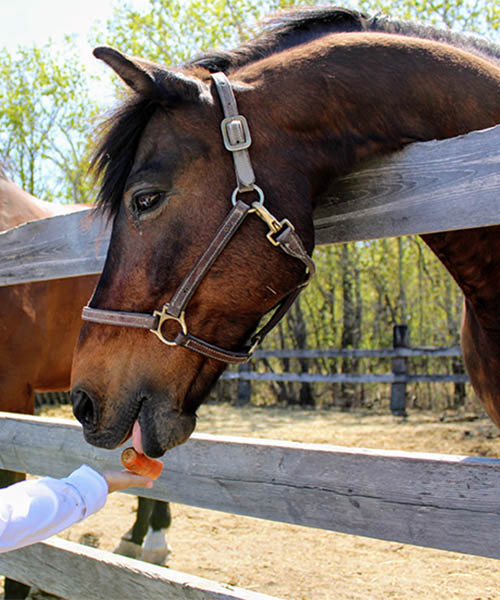
Whole Food Treats: Traditional foodstuffs such as apples and carrots can still have a place in a horse’s diet. Many horses love the natural flavors and textures of these delicious fruits and vegetables! Additionally, you may want to try feeding your horse pears, celery, watermelon, and even butternut squashes, which many horses find to be delicious. But please make sure to cut them up into bite-size pieces to avoid choking. It is also important to confirm that you are not feeding your horse any toxic fruits or vegetables, however, since some, like cabbage, brussel sprouts, avocados, and kale, can be poisonous to your horse.
Sugar cubes and peppermints are also commonly fed to horses. These can be delicious treats, but they should be fed in moderation. They are higher in sugar than manufactured horse treats and can contribute to tooth decay. Horses with insulin resistance (IR), Cushing’s disease, or other metabolic disorders should never be fed sugar cubes or candies.
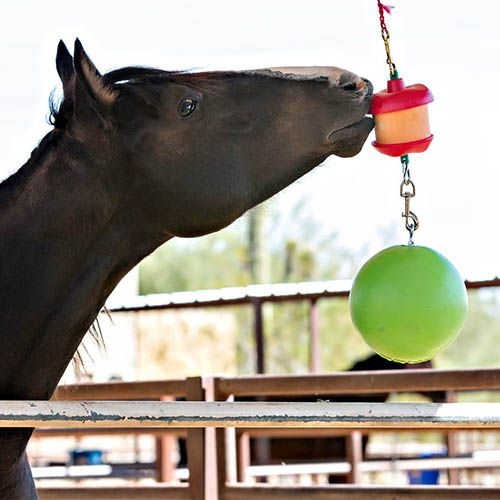
Interactive Treats/Toys: Both delicious and entertaining, interactive treats and toys keep your horse mentally stimulated while also rewarding them with a tasty treat. These are extremely popular for horses on stall rest as well as horses that spend large amounts of time inside in their stall, but, the truth is, nearly every horse will enjoy them! Likit Horse Toys are a popular choice for toys that have treats integrated into them, while Uncle Jimmy’s Hanging Balls are delicious treats that are disguised as a toy! If you choose to use these fun treat-toys, make sure that you hang them according to the manufacturer’s recommendation.
Mashes: A delicious addition to any feed bucket, mashes are designed to be mixed with warm water prior to feeding. Many equestrians feed them on cold winter evenings to encourage more water consumption, while also helping foodstuffs move through the digestive system (and therefore deter colicking). Beet pulp and bran are traditional ingredients in these mashes, but many formulas use other delicious treat add-ins to make them more palatable to your horse. Barn size buckets, such as the Equine Edibles Candy Cane Bran Mash, are available, as well as convenient single-serving packages, like Emerald Valley SuperMash With Fibre-Beet.
Emerald Valley SuperMash With Fibre-Beet
This popular mash is fiber based, meaning no corn and no bran.
Frequently Asked Questions About Horse Treats
We get many terrific questions about horse treats from our wonderful customers, here are some of the most common ones:
What is the best way to store horse treats?
After you have selected the perfect treats for your horse, it is important that you store them properly to avoid spoilage. Treats should always be stored in an airtight container, such as the GT Reid 6 Qt Heart Shaped Pail and matching GT Reid 6 Qt Heart Shaped Pail Lid or the Van Ness Pet Treat Container, in a cool, dry location. In general, commercially made horse treats maintain their freshness for 90 days after you have opened the package, with many treats lasting until they are six months old. You should never feed treats that are moldy, smell off, or show other signs of spoiling.
GT Reid 6 Qt Heart Shaped Pail Lid
Show your animal love with this sweet heart shaped pail and matching lid.
How should I give my horse a treat?
There are a number of ways that you can treat your horse. Many equestrians prefer to place the treat directly into the feed bucket so that their horse does not become pushy or beg for the treat. If you choose to feed your horse treats directly from your hand, it is important to ensure that your horse is being calm and respectful during the process. If at any point, your horse starts to become grabby or nippy, you should discontinue treating from your hand until this behavior has subsided.
When feeding your horse a treat from your hand, place the treat in the palm of your hand and offer it to your horse with your fingers outstretched. By offering it to your horse in this manner, your horse will not mistake your fingers for another tasty snack!
How many horse treats can I feed each day?
There is no hard rule when it comes to the number of horse treats per day, but moderation is key. The appropriate number of horse treats will depend on a number of factors, such as the weight of your horse, the age of your horse, and the size of the horse treats. We recommend referring to the horse treat packaging to determine the appropriate number of treats for your horse. If you have any questions regarding the proper amount of treats, we recommend speaking with your veterinarian who knows your horse and their individual needs.
At what age can my foal begin eating treats?
Horses can begin to be offered treats when they are fully weaned from their mothers and are receiving all of their nutrition from forage and grains. Proper to this important milestone in your horse’s life, they can choke on the treat easily. Start by feeding your horse small horse treats in very small quantities. Foals have smaller stomachs and need top-quality nutrition, so you do not want your foal to consume too many treats.
Do all horse owners give their horses treats?
No, not all horse owners give their horses treats. Make sure that you ask before giving any horse that you do not own a treat. Some horses can not have treats due to dietary restrictions, while some horses will begin to bite or crib after treating. Other owners just choose not to make horse treats a part of their horses’ diets. For safety reasons and respect toward horse owners’ wishes, you should ask every time.
Horse treats can be an enjoyable addition to your horse’s daily routine when used in moderation, they are also pleasing to feed to your horse! From healthy treats to special occasion cookies, finding your horse’s favorite treat is a fun and rewarding process.
What is your horse’s favorite treat? We would love to hear about it in the comments below.

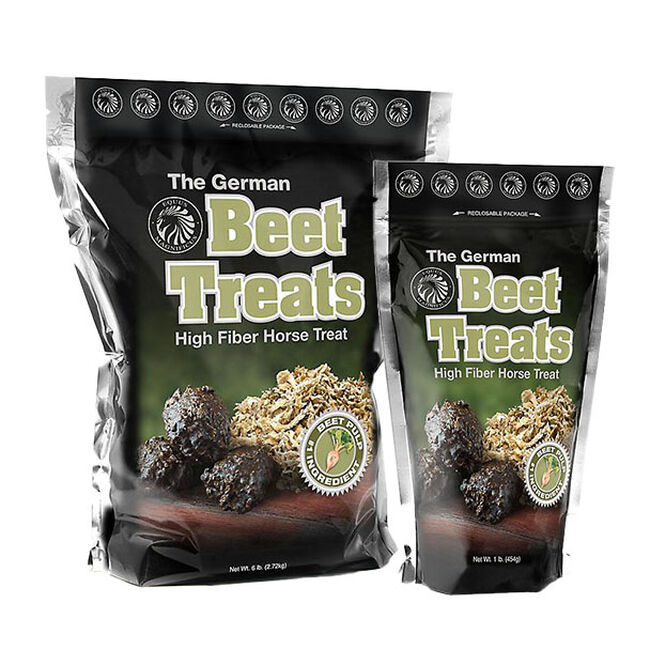
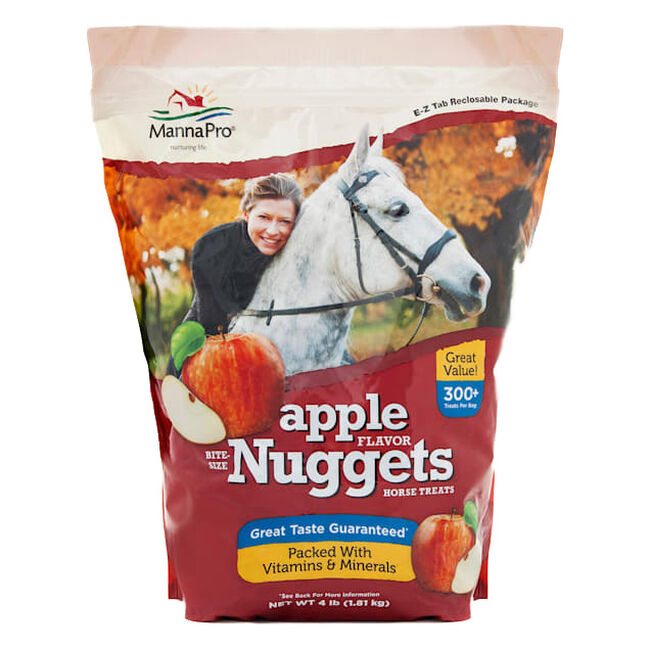
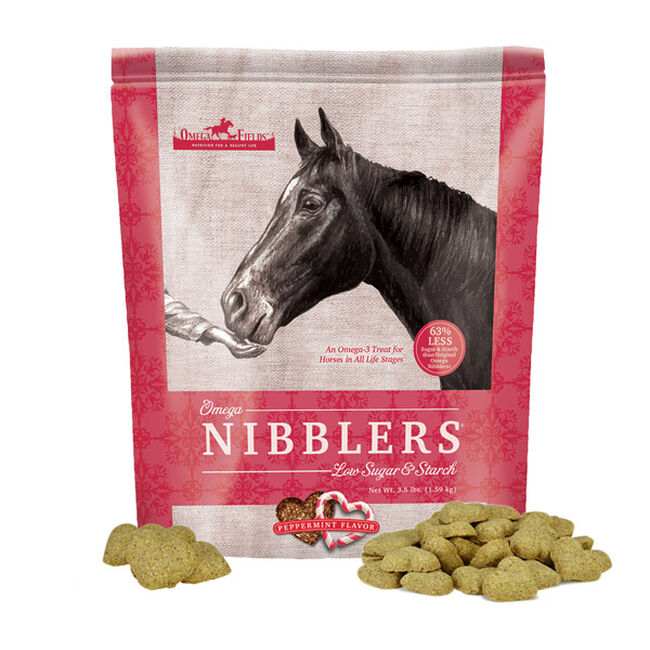
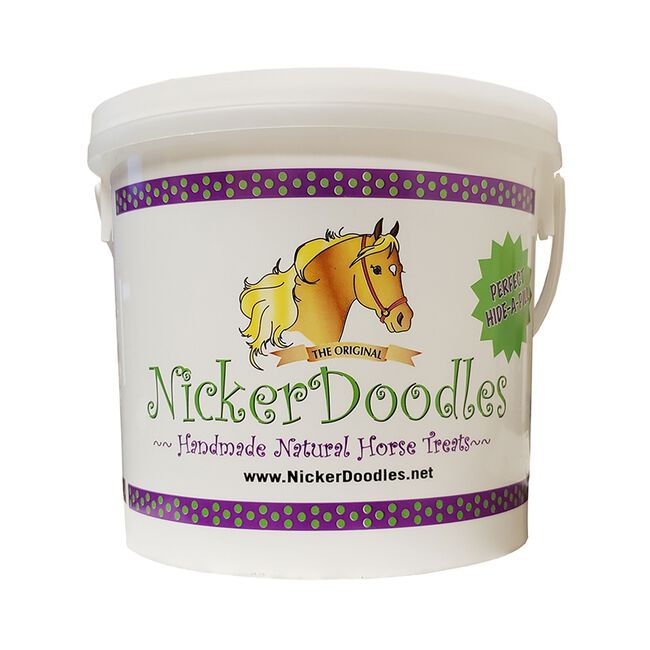
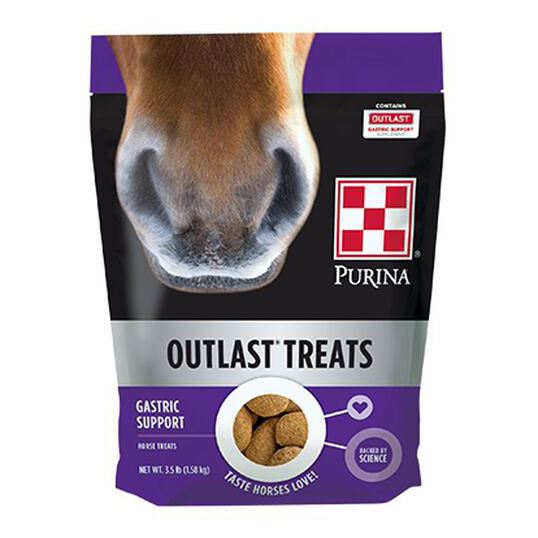
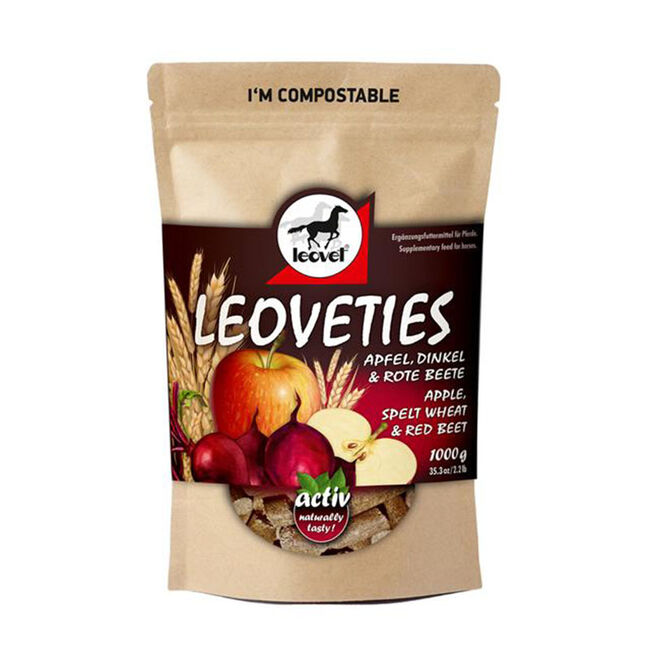
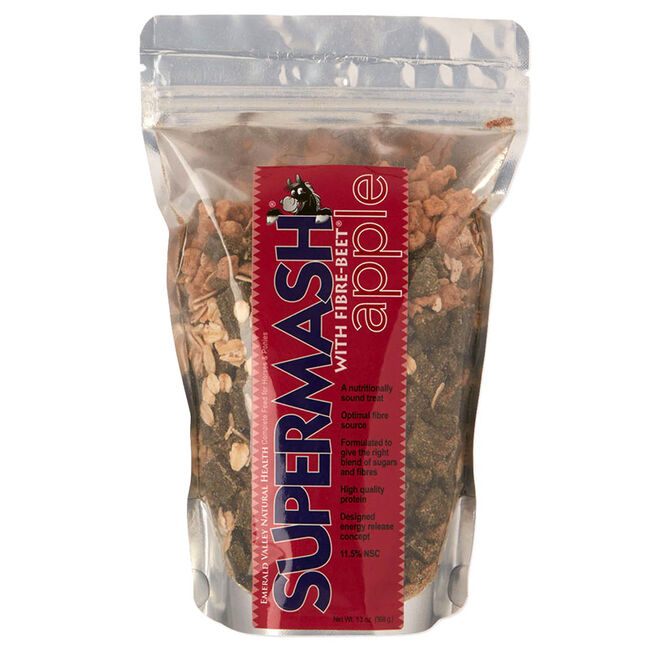
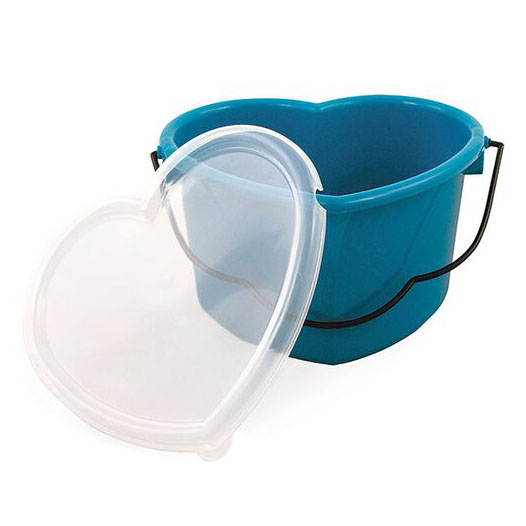
My horse’s #1 favorite tray is clearly mints. I only treat him to do stretches, and occasionally while catching him from turnout. After feeding him a human candy mint, he licks my gloves & sleeves. He doesn’t do that after any other treat. Unfortunately he has recently been diagnosed with Cushings & insulin resistance. I will no longer give him mints. I am shopping for low sugar, low starch mint flavored horse treats.
The Omega Fields Omega Nibblers Peppermint Flavored Low Sugar & Starch Horse Treats and Buckeye No Sugar Added Peppermint Bits Horse Treats are great options!
I can recommend Kelcie’s Pumpkin Spice. They are made from 14 all natural healthy ingredients like Tumeric, Pumpkin, Anise plus other.s. Horses and dogs adore the taste too. Fussy Eaters love them and as they are low in sugar, they are perfect for horses who have Cushing’s. I would recommend you try Kelcie’s, they are the perfect horse treat.
Great recommendation! Those treats are available on our website at https://www.cheshirehorse.com/p/kelcie%E2%80%99s-pumpkin-spice-horse-treats/KW86024.html.